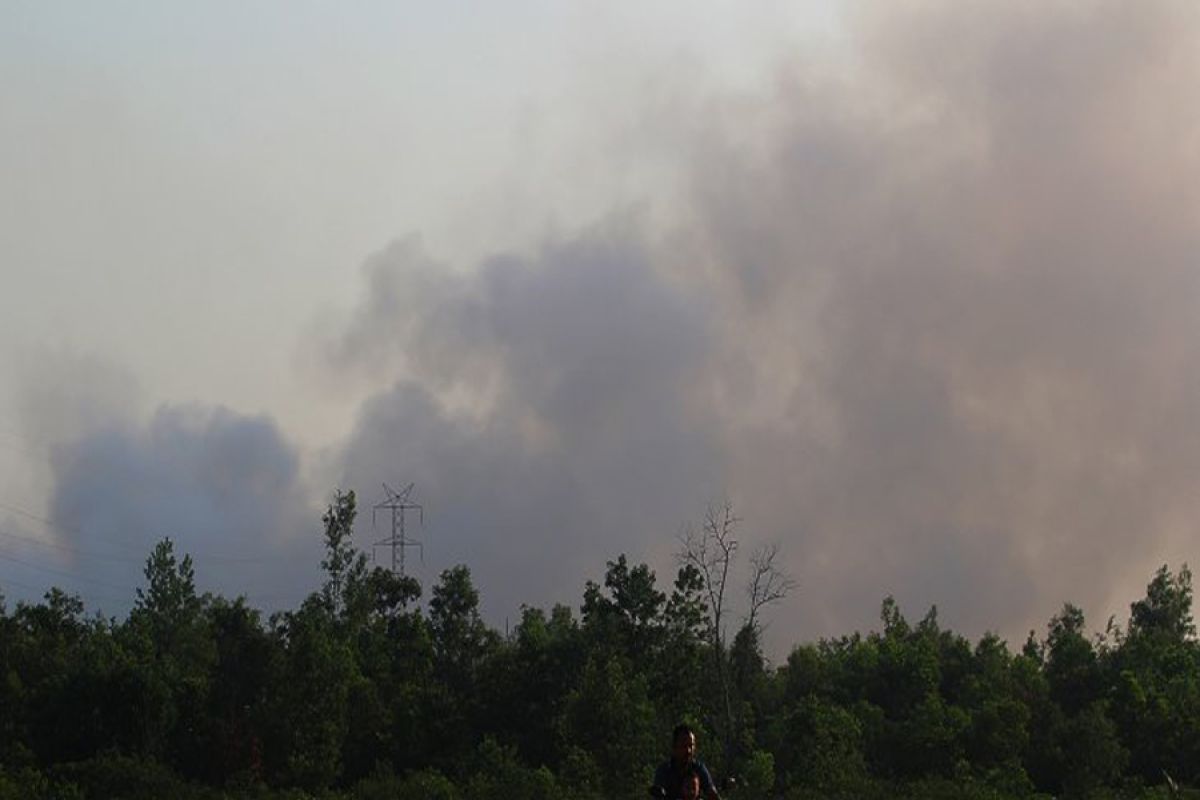
Tackling forest fires in five Indonesian provinces

Being susceptible to smoke emitted from forest fires, the children were told about the health hazards posed by exposure to haze and hence were asked to wear the masks.
"Before entering the classrooms and before leaving for home, we remind the children of the dangers of haze," said Afni Sarianti, the kindergarten’s teacher who was also wearing a mask.
The government is expected to deal promptly with forest and bush fires to prevent the recurrence of the forest fire and the resultant haze that took place in 2015 and forced schools to temporarily close for nearly a month.
The dry season will last from July to October this year and when it peaks in August it will be drier than in the previous years, the Meteorology, Climatology and Geophysics Agency (BMKG) has predicted.
Some 28 of the 34 provinces in Indonesia are threatened by drought due to the severe dry spell induced by the El Nino natural phenomenon, Deputy Coordinating Minister for Human Development and Culture Dody Usodo has warned. He reminded people to remain vigilant about forest fires and the water crisis.
Until July 17, land and forest fires in the country had covered 42,740.42 hectares in 24 provinces. Nearly 99 percent of the fires were triggered by intentional or accidental human activities, Agus Wibowo, spokesman of the National Disaster Mitigation Agency (BNPB) said.
President Joko Widodo (Jokowi) has issued orders to immediately extinguish the forest fires raging in several regions across the country.
"Three days ago, I had called the BNPB (National Disaster Mitigation Office) chief, commander of the National Defense Forces (TNI), and the National Police chief to deal with (the fires) in Riau, Palangka Raya, immediately," Jokowi remarked on July 31, 2019.
The Coordinating Ministry for Political, Legal, and Security Affairs has appealed to 11 provincial administrations prone to land and forest fires to impose an emergency alert status in their respective regions.
So far, only five provinces – Riau, West Kalimantan, South Sumatra, South Kalimantan, and Central Kalimantan – have declared an emergency status of forest fires.
Riau has declared an emergency status for land and forest fires from February 19 to October 31, West Kalimantan from February 12 to December 31, South Sumatra from March 8 to October 31, Central Kalimantan from May 28 to August 26 and South Kalimantan from June 1 to October 31, the ministry's deputy for social vulnerability and disaster impact, Dody Usodo, said in Jakarta Tuesday.
Dumai municipality in Riau province, Sambas district in West Kalimantan and Ogan Komiring Ilir district in South Sumatra have also declared an emergency status.
The emergency status in Dumai lasted from February 13 to May 31, while the one in Sambas and Ogan Komiring Ilir will last from February 1 to December 31.
A total of 27,683.47 hectares of forest, peatland, and bush areas in Riau Province were gutted as of July 29, 2019, as compared to 2,273.97 hectares in West Kalimantan, 236.49 hectares in South Sumatra, 52.53 hectares in South Kalimantan, 27 hectares in Central Kalimantan, and 4.18 hectares in Jambi.
On July 29, at least 27 hotspots were detected in Riau, 26 in Jambi, 14 in Central Kalimantan, 12 in West Kalimantan, and five in South Sumatra.
Some 5,929 personnel, comprising military, police, and civilian officers, have been deployed to extinguish forest fires in the five provinces of Riau, South Sumatra, Central Kalimantan, West Kalimantan, and South Kalimantan.
The personnel were part of the Land Task Force for forest fire emergency and supported by the Air Task Force as well as firefighters from private companies, such APP Sinar Mas, which has deployed 3,180 men.
The Air Task Force has also deployed helicopters. A total of 17 helicopters from the Military, private companies, Environmental Affairs Ministry and the Natural Disaster Mitigation Agency (BNPB) have been readied in Riau, three in South Sumatra, six in West Kalimantan, and seven in Central Kalimantan.
Some 61.06 million liters of water has been used to put out the wildfires. The authorities have also applied weather modification technology to induce artificial rain in regions where hotspots were detected.
Over the last couple of years, Indonesia has managed to reduce drastically the number of hotspots and forest fires, thanks to all-out efforts by regional authorities, particularly with the support of military officers.
Pewarta : Fardah
Editor:
Budisantoso Budiman
COPYRIGHT © ANTARA 2026








